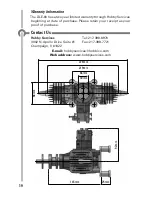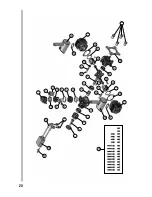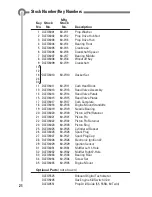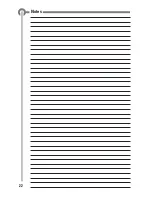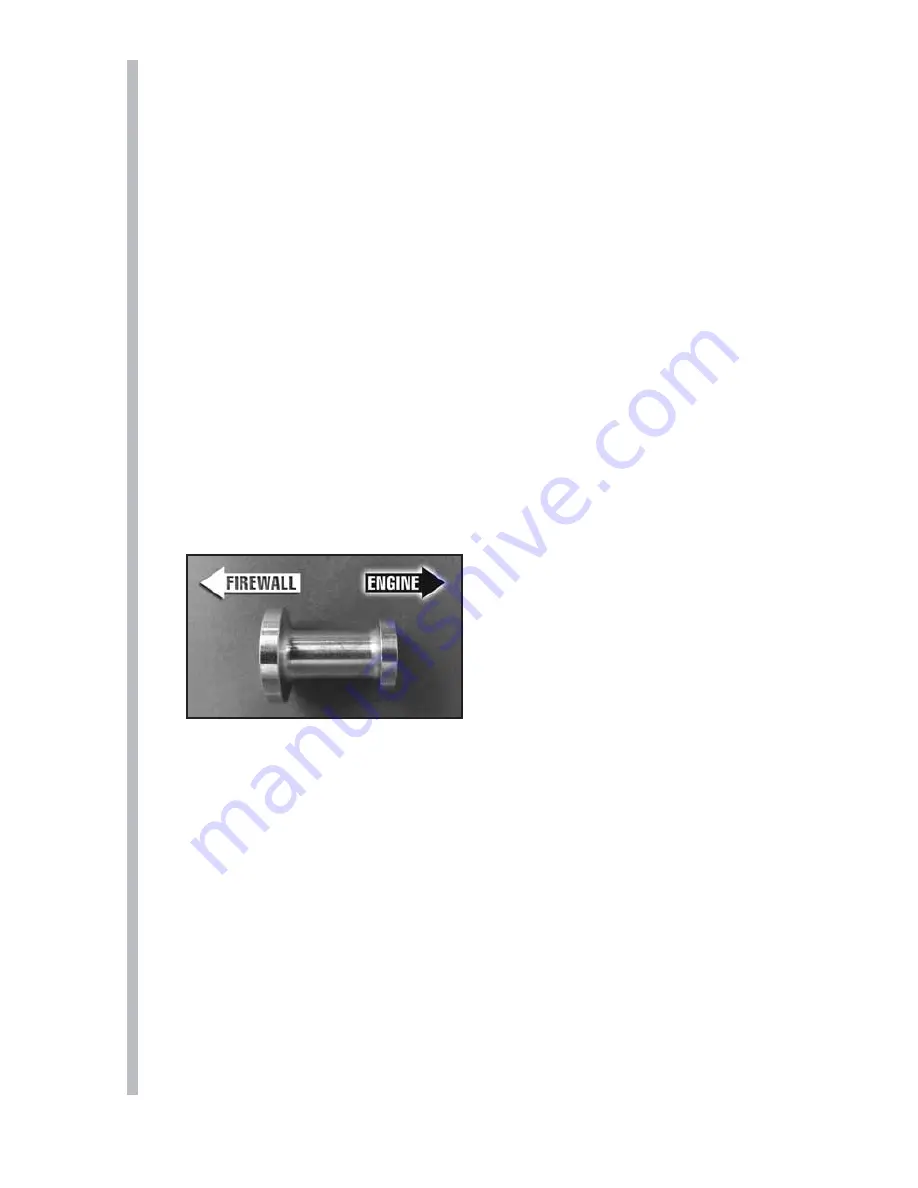
7
7.
Secure all connections with heat shrink tubing. (not supplied)
8.
Install the remaining silicone wire covers over the ignition wires.
9.
Install the spark plugs into the cylinders (7-8lbs torque). Do not
overtighten.
Installing the DLE-60 on Your Airplane
Note:
The DLE-60 must be installed on a minimum 3/8" [9.5mm]
plywood fi rewall.The fi rewall must be securely glued to the airplane.
Use triangle stock and pin the fi rewall with hardwood dowels to
reinforce the fi rewall glue joints. Never install the DLE-60 onto a
fi rewall thinner than specifi ed because it may fail due to the power
of the engine.
Note:
The overall length of the engine from the back of the engine
mount to the face of the propeller drive hub is 6.69" [170mm].
1
. Use the supplied template (on the back cover of this manual) to
drill the engine mounting bolt holes.
2
. Install (4) 5mm blind nuts (not
included) into the back side (non-
engine side) of the fi rewall. Install
the engine to the fi rewall using
(4) 5x45mm SHCS with 5mm
lock washers and fl at washers
(not included) with the included
standoffs. Use threadlocking
compound, such as Great Planes
®
Pro
™
Threadlocker (GPMR6060),
on the screws where they thread into the blind nuts.
3
Install the fuel tank in the airframe. Use only gasoline approved
fuel tank and lines and a gasoline safe fuel tank stopper. One line
should go to the carburetor and the other is to be used as a vent
(a vent line is simply an open ended fuel line from the fuel tank
which exits the engine compartment or the fuselage; most vent lines
exit at the bottom of the fi rewall).You can fi ll the tank by using the
carburetor line as fi ll line if you have access to it or install a third
line to be used as fi ll line. Installing a third line is the cleanest and
easiest way to add fuel. An alternative fueling set up is a 2-line
system with a T-fi tting approved for gasoline use. Be sure to use a
fi ller plug with either a 2 line or 3 line set-up. It is a good idea to
add an extension to the vent line as shown, that goes up and to
the rear of the tank. This helps to avoid draining fuel from the tank
when the model is pointed down.



















